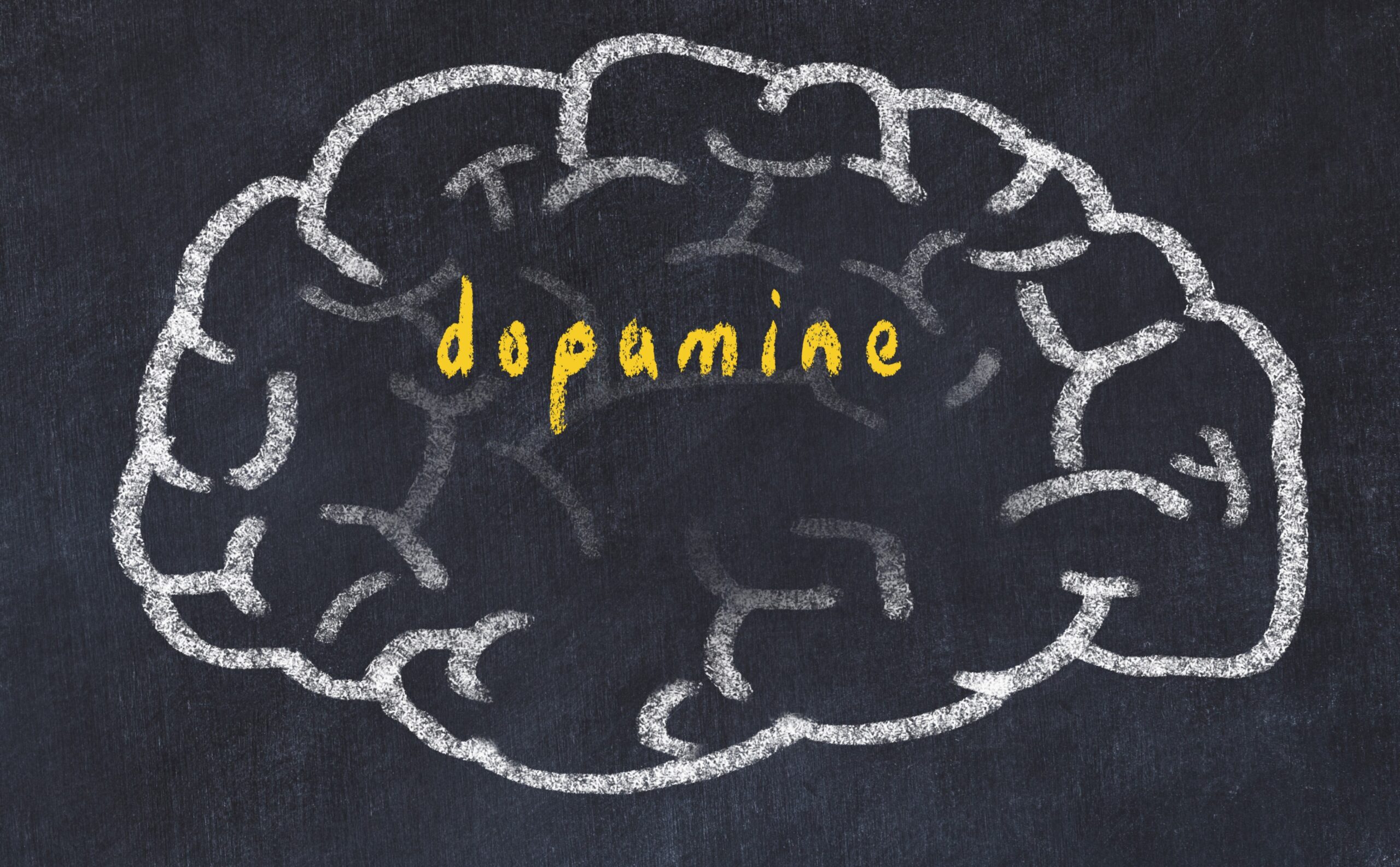It is important in the reward system in the brain, and is activated by primary rewards such food, sex, and drugs. Over time the brain’s reward system can learn cues in the environment we associate with potential rewards and this can increase the activity of dopamine even in the absence of a reward, for example being in a sweet shop or just thinking about chocolate can activate it.
Expectation and anticipation of the rewards is called wanting, the lack of wanting, interest and pleasure in rewarding experiences called anhedonia is one of the main symptoms of depression, and dysfunctional dopamine regulation has also been linked to this disorder.
Dopamine plays important roles in vital function in the human brain, to most it may seem really odd to willingly want to fast from it, but the idea of dopamine fasting is based on the knowledge that it is involved in unhealthy and addictive behaviors.
Dopamine underpins wanting, as an example an addict may say they want to quit taking drugs, but when in certain places where drug cues are present the brain’s learned wanting system kicks in and the addict becomes overcome with strong urges to take drugs. Those that fast believe that they can reduce their unhealthy desires and cravings as well as unwanted behaviours by reducing dopamine.
It is not advisable to reduce the amount of dopamine in the brain, even if it was possible, as to be clear it is needed for everyday normal functions. Simply banning a particular reward really is not going to reduce the levels of dopamine but it can help to reduce the stimulation of dopamine, and by reducing stimulation it is possible to reduce the amount of dopamine activity. The key to this would be to limit exposure to triggers associated with rewards as it is these cues that initiate cravings, desires, and behaviours to help get rewards; just cutting out the reward will most likely not stop the brain from making us crave and activate dopamine. To say that this will reset the brain is unlikely, and not correct, without knowing what the baseline is there is no way to tell, so from that perspective it seems like nonsense.
If you want to cut down on unhealthy behaviours such as spending too much time on social media or even overeating, you start by reducing exposure to environmental cues that trigger desires to carry out unhealthy behaviours. For instance try turning the notifications sounds off on your mobile device, this way dopamine is not being activated by cues to signal urges to pick up the device. In the case of alcohol, rather then ending up in bars try going elsewhere such as cinemas, bowling, skating, or art classes.
Symptoms of unhealthy behaviour are very similar to that of the signs of substance abuse, and may include but are not limited to spending the majority of your time engaging in the behaviour, continuing the behaviour despite physical and/or mental harm, as well as having trouble cutting back despite wanting to stop neglecting family, school, or work. Once more you may even experience symptoms of withdrawal when trying to stop like irritability among others. For those that find themselves in this sort of situation they may want to think about removing the cues that stimulate their dopamine neurons, as a sort of a dopamine fast.




